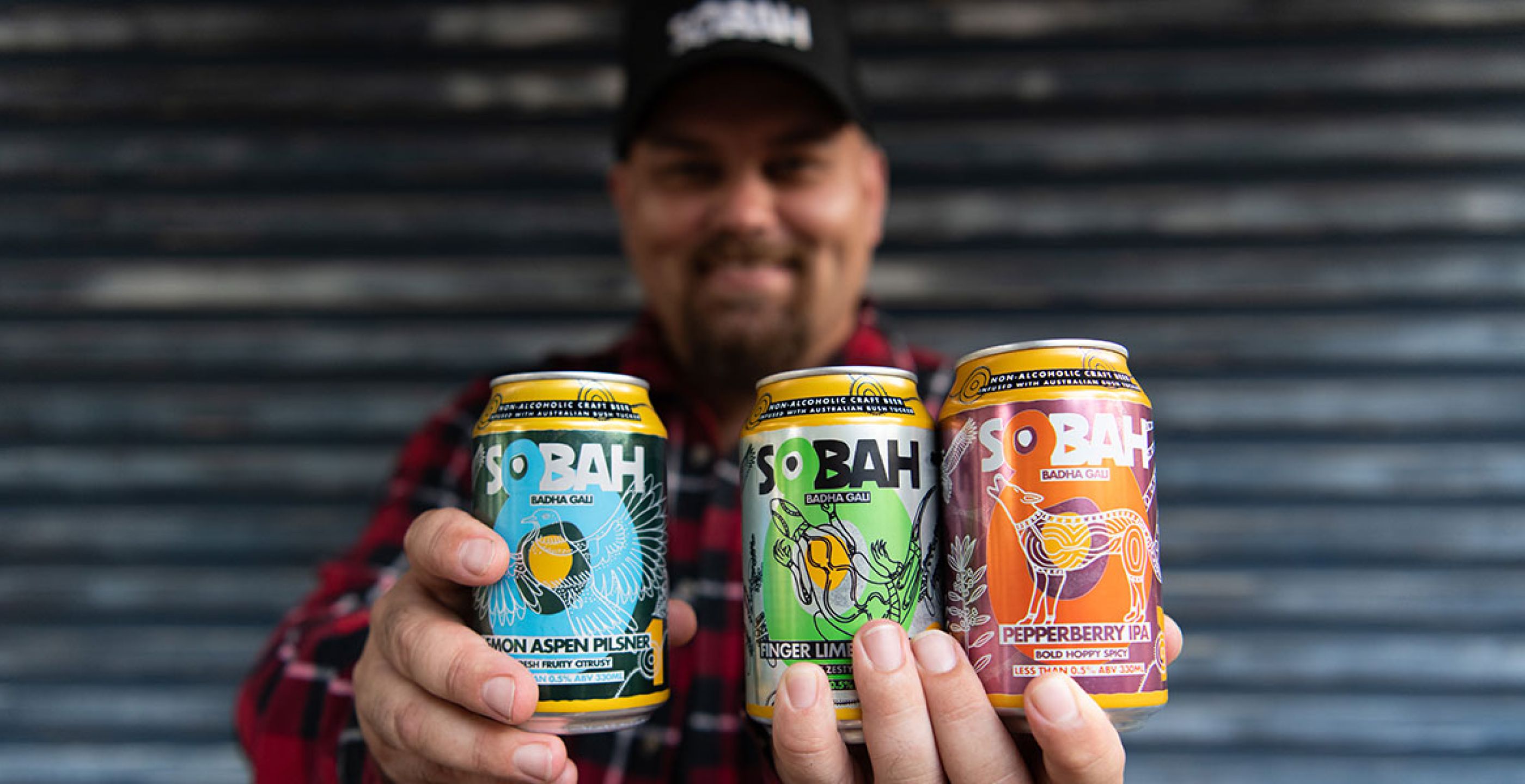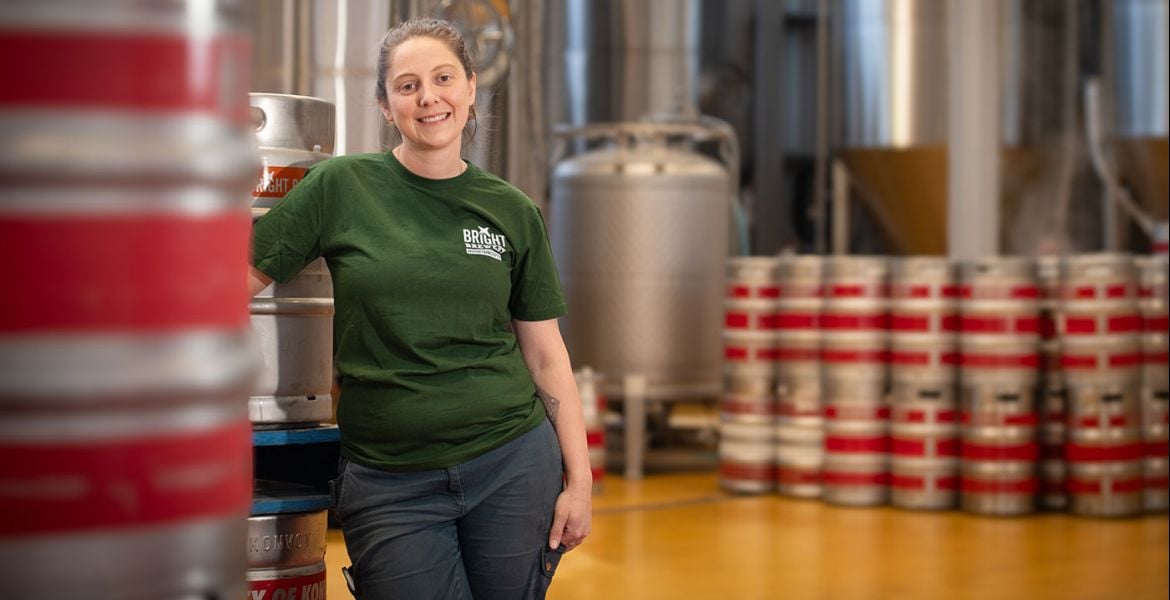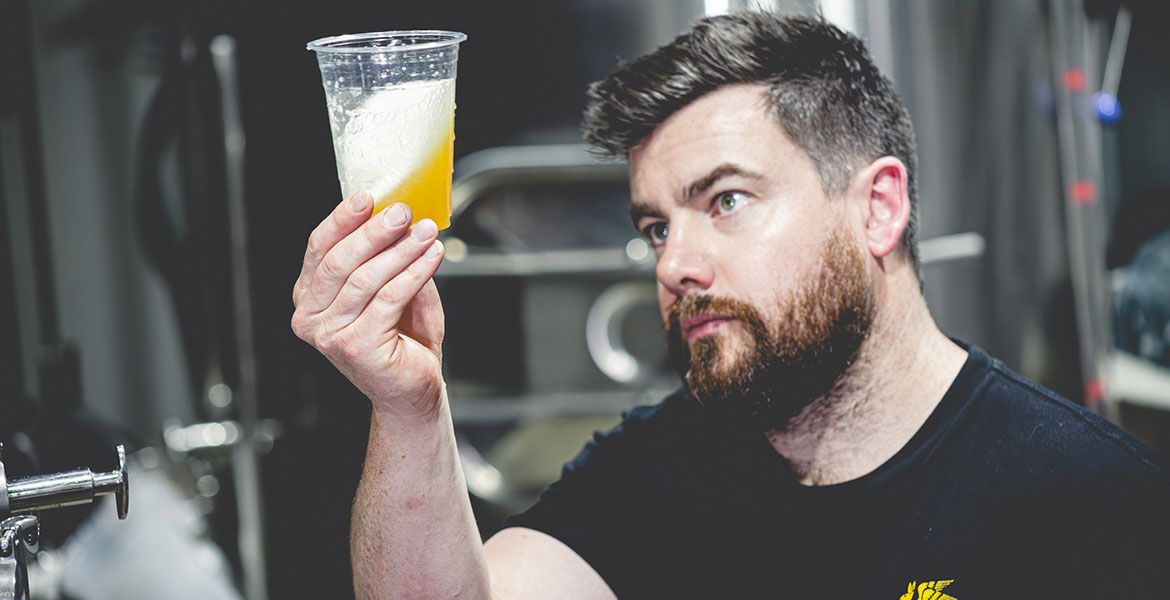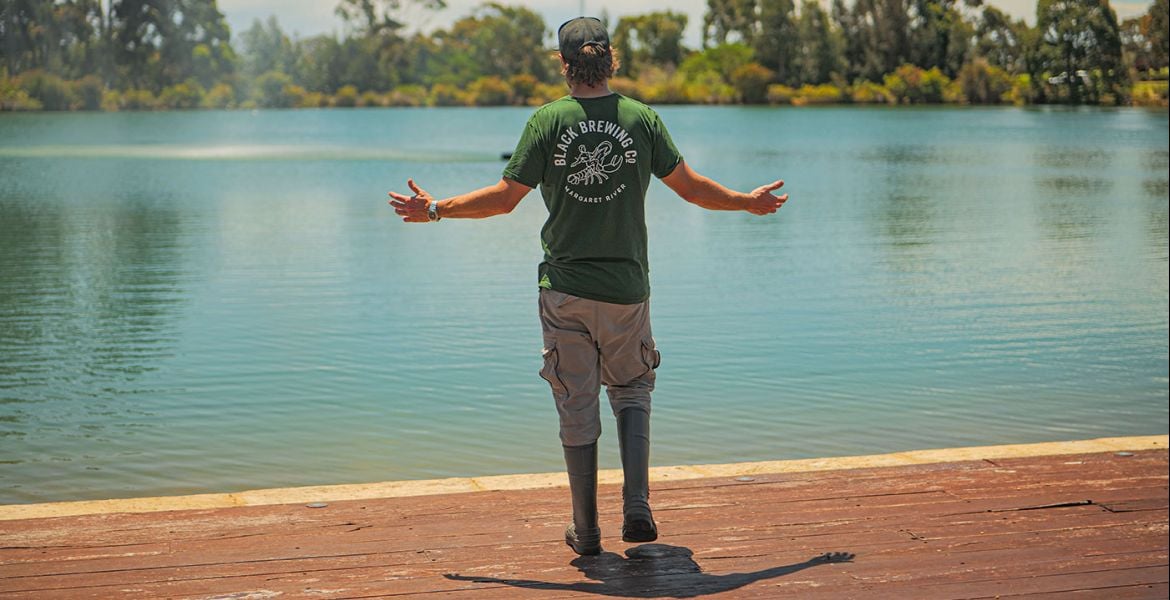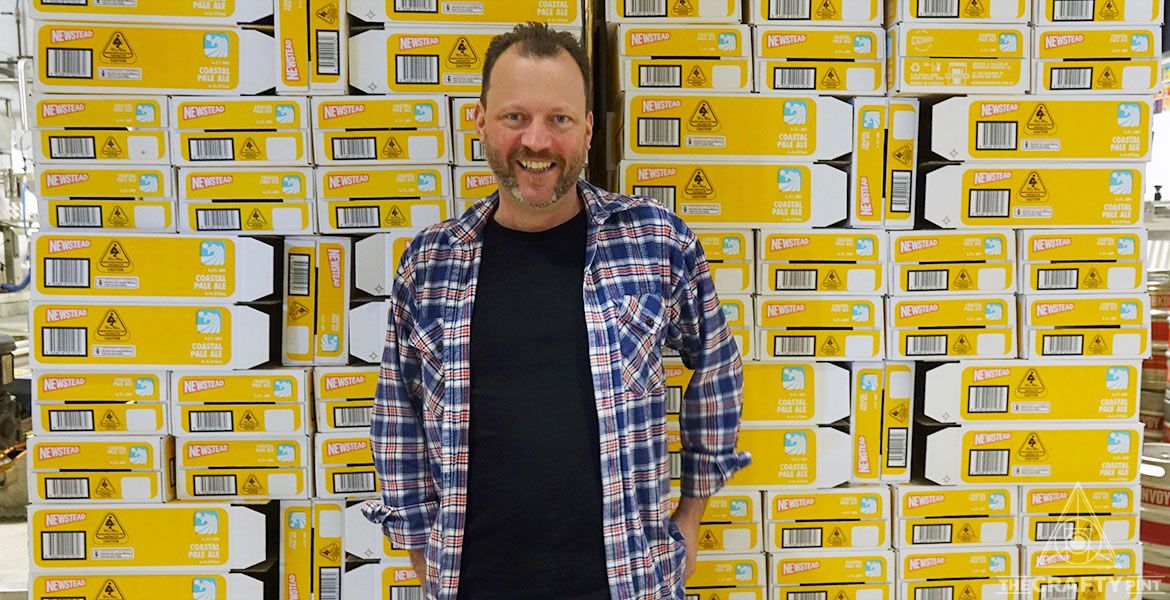Alcohol-free craft beer has enjoyed quite the rise in Australia over the last couple of years, but even within that busier space Sobah is an operation that remains unique. The Queensland-based brewing company which launched in 2017 focuses on native ingredients and is Indigenous-owned and led by Gamilaraay man Dr Clinton Schultz and his wife Lozen McDiarmid.
And while they've been around for half a decade already, it feels like 2022 will be their most exciting year yet. They're set to open their own brewery and taproom towards the end of the year in Kombumerri Country, the Gold Coast, while they've just appointed a new head brewer, Wailwan man and the "bushtucker brewer" Luke Cooper.
Luke recently graduated from TAFE Queensland with a Cert III in Food Services (Brewing), after joining the Sobah team in November last year. Initially, that was help with brand development and sales in South East Queensland and the Northern Rivers region of New South Wales. But the plan was always for him to switch his focus towards making beer, an intention that saw him quietly working on new recipes.
“I always going to be joining them as a brewer but we do need to wait for the brewery to open," he told The Crafty Pint. "There’s a lot happening behind the scenes; we can’t wait to get in there, of course.”
The head brewer role has seen Luke work with Clinton on the planning and installation of their new brewery, as well as developing pilot brews and overseeing their contracted production and quality control. Initially, Sobah had hoped to get the brewery install underway in May but, at time of writing, that's looking closer to the year's end.
In terms of production, Luke says great efforts have been undertaken to focus on sustainability through solar and water recovery. And while their 25-hectolitre brewhouse might resemble those in brewpubs across the country, given it will also feature a native food-focused café, the hospitality side of the business will stand apart.
“It will be a social, wellbeing and education venue for people to visit,” Luke says.
“So, some of the native ingredients we use in the beers will be used in the café and that’s part of the education piece. I’m hoping we can make some bread out of spent grain and tie in the circle of what we do with natives to make the beer and how we use them in the café.”
When it comes to what he’ll brew, the design of their brewery and in-house pasteuriser will give Sobah greater flexibility then they enjoyed while contract brewing. It means that as well as focusing on their established flagship beers, Lemon Aspen Pilsner, Pepperberry IPA and Finger Lime Cerveza, they’ll look to expand the core range and release a stream of limited releases.
“The craft industry is a really big fan of new so I hope to do fresh and new on a regular basis while getting the core into as many hands as possible,” Luke says.
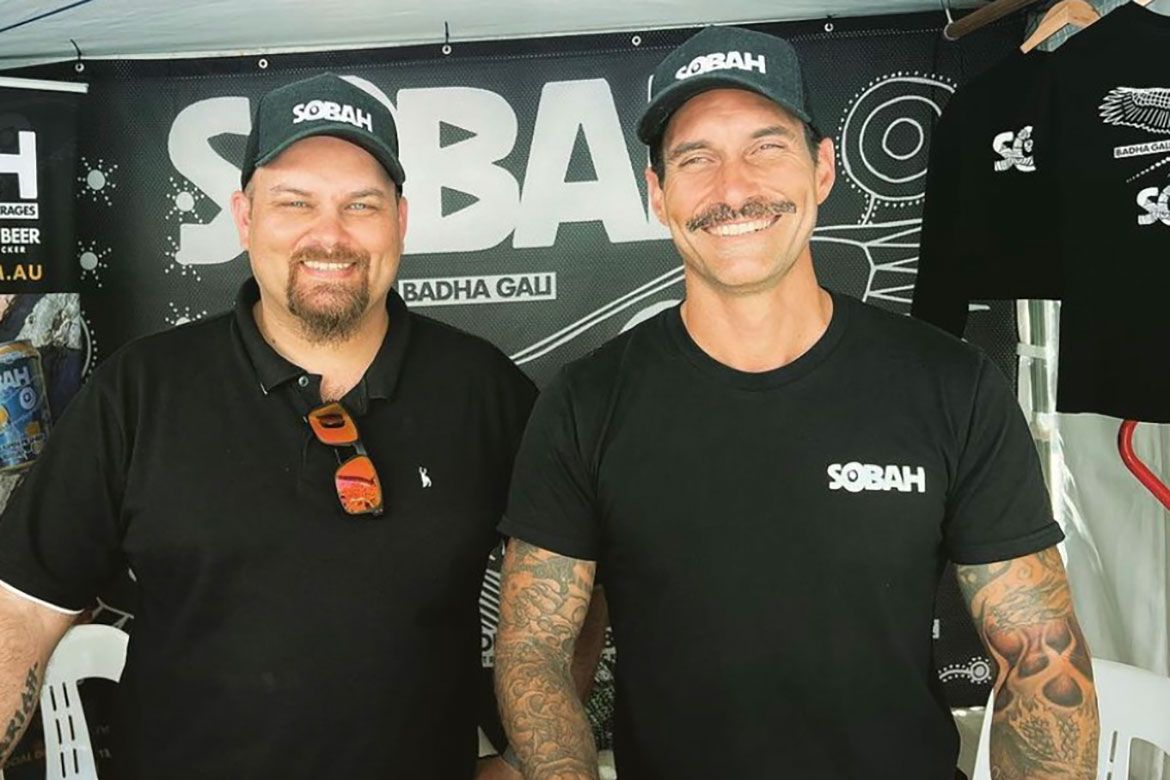
Luke might be new to brewing, but his life in the liquor industry stretches back more than two decades, to when he was living in the northern New South Wales town of Moree and landed a job at a bottleshop.
“When I started in Moree, it was either Tooheys New or VB and that was pretty much it out there,” he says, not that this stopped him exploring new beers and passing his passion onto customers.
“I was trying to educate my consumers and I had people bringing back bottles of Coopers because there was sludge in the bottom.”
In 2005, Luke made the move to Logan to the south of Brisbane; largely the craft beers on offer were those from James Squire and Matilda Bay, but since then he's watched as the region's beer scene has gone into overdrive.
“There definitely wasn’t too much available in Queensland at the time but now it’s booming,” he says.
Luke admits he never thought his career would take him into the world of alcohol-free beer, but now sees the market as an important and growing one, even if it remains challenging.
“We still get laughed out of some venues," he says, "and there still is that stigma around it, but there’s also places that are calling out for us to join them.”
For much of his career in the world of beer, he's been involved with the liquor arm of Coles, and was working there when he first heard about Sobah.
“I reached out to them to see if we could get it but the production wasn’t at that level at the time,” he says.
Keen to better understand non-alc beer and to learn how to brew, he started stewarding at the Royal Queensland Food & Wine Show awards, where he is now involved in as a judge. Then last year, while studying brewing at TAFE Queensland, he reconnected with Sobah after asking Clinton to speak to his cohort.
“Then he reached out to me to see how their course was going to see if I wanted to come have a yarn.”
As a Wailwan man, he’s particularly excited to be joining a First Nations-owned and led business focused on doing social good while championing Aboriginal and Torres Strait Islander culture – which isn't a business he ever thought he’d see in Australia.
“I never thought there was going to be one," he says. "The indigenous community and alcohol has always had a tough relationship, and being indigenous and loving craft I didn’t think there would ever be one but I’m happy I found it.”
As Luke celebrates his new role, brewing qualification, and the busy months that lie ahead installing the brewery, we invited him to join us as part of our Brew & A series.
Luke Cooper
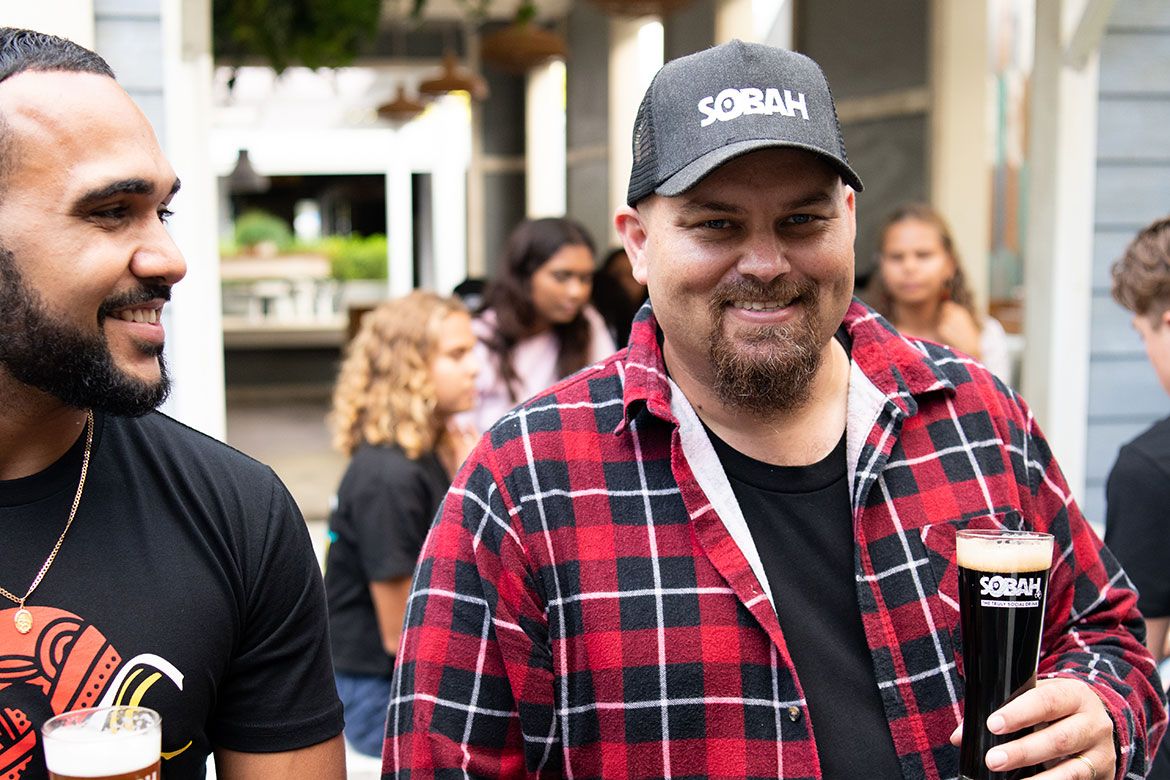
Why are you a brewer?
Beer has always been a passion of mine, and after pouring pints and selling cases for over 20 years I decided to learn more about production. My involvement in the Royal Queensland Beer Awards – firstly as a steward, then as an associate judge and now a judge – is what cemented this career direction as I got to know some of the best in the industry.
What would you be if you weren’t a brewer?
If money wasn’t an issue, I would be involved in the community on a volunteering basis. There is something about helping and giving back to those less fortunate that resonates with me. Having benefited from numerous charities growing up, I know how much difference it can make.
What was your epiphany beer?
I wouldn’t say I’ve ever really had an epiphany beer, rather some beers that have really stood out to me at some time. Not only in terms of my beer journey, but sometimes in terms of the representative beer market.
How did you first get involved in the beer world?
After a few weeks cotton chipping in Moree, I decided to apply at the local hotel bottleshop to get out of the sun. Let’s just say I never went back to a cotton field after I landed that role.
What's the best beer you’ve ever brewed?
Most brewers will say: "It’s still to come." However, one of my recent Sobah pilot recipes was 100 percent spot on; it’s ticked every box and had great feedback from our tasting team.
I can’t wait to take it to market later this year.
What's your single favourite ingredient to use in beer?
That’s a tough question as I have the opportunity to explore so many native ingredients that make for some very interesting and exciting flavour profiles in beer in my current role at Sobah. However, I still take in a deep breath whenever I open a hop pack; I just love the smell and varieties of flavours that hops can produce.
If I could find a lupulin aftershave, I’d probably wear it.
Are there any beers you’ve brewed that might have been better left on the drawing board?
So far, no… In saying that, some of my processing let some beers down which I have learnt from. It’s those little tweaks that can take a good beer and turn it into a great beer.
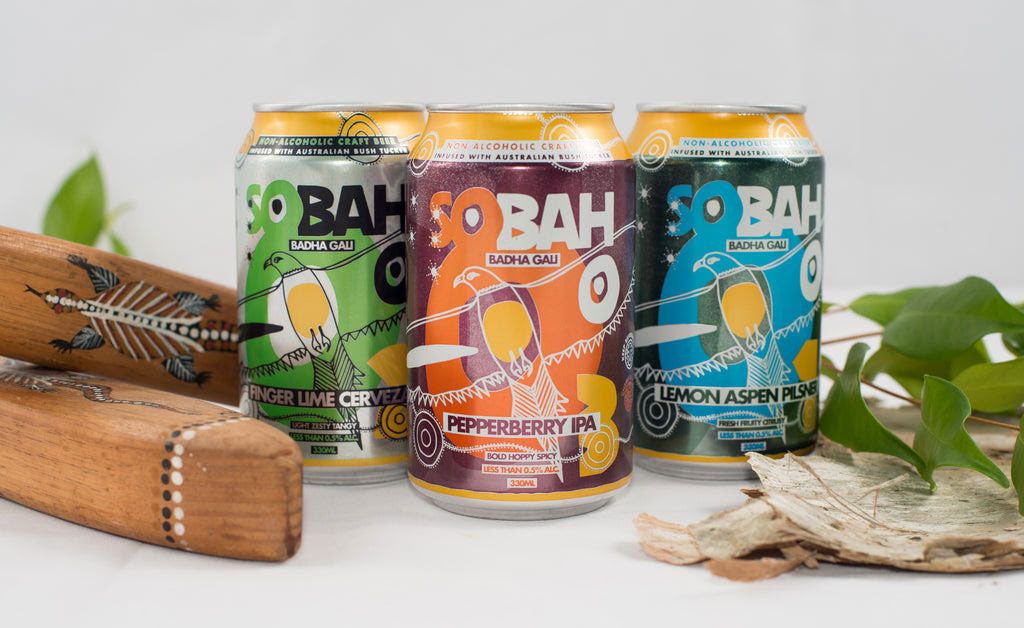
If you could do a guest stint at any brewery(s) in the world, which would it be and why?
One of my favourite breweries was Stone Berlin before it was sold to BrewDog (I haven’t visited the site since the changeover). I would have loved to brew on that kit and at that amazing remote venue.
I guess I’ll just have to settle for Sierra Nevada at Chico now, with Ken Grossman of course. Those hop pits look amazing.
Which local (Aussie or Kiwi) breweries inspire you?
I’ve been a fan of Black Hops from early on and still am. I even did my placement at BHII and it lived up to my expectations. It’s not just their beers, it’s their openness to sharing their challenges along the way with every aspect of growing a successful brewery.
Since joining Sobah, I’ve never been more inspired. James from The Good Beer Co is one of our advisors for all things sustainable and social enterprise. Between him and Clinton there are some high standards to meet, and brewing with the notion of doing good for people and the environment is a welcome challenge!
What inspires you outside the world of brewing beer?
My wife and children, of course. But more deeply speaking, I am still learning about my Aboriginal heritage, my mob and where I’m from, and opening myself up to having a meaningful connection with Country.
It has been something that has always been with me, however I never really gave it the time and importance that I do now.
What's your desert island beer – the one to keep you going if you were stranded for the rest of your days?
That’s a tough one – different times of the day call for different beers! I’d start the day with a Sobah Finger Lime Cerveza to quench my thirst while I keep my wits about me to catch a few fish.
I reckon a fresh pint of Russian River Pliny for sundown and maybe a big barleywine or imperial stout for stargazing at night.
And what would be the soundtrack to those days?
If I’m living out the rest of my days on a desert island, I would hope I’d have a very large sound system to blast Rage Against The Machine’s self-titled album. Not great for fishing though.
If you couldn’t have beer, what would be your tipple of choice?
Beer or bust. It’s rare that I don’t have a beer around but, if that was the case, it’d be a whisky and dry or a tipple of Port.
What's the one thing you wish you’d known before becoming a brewer?
No one expects you to know how to spell "phenolphthalein" off by heart!
And the one piece of advice you’d give to anyone considering a career in craft beer?
It’s such an exciting industry to be a part of, particularly in Australia! There is a job for everyone. From chemistry to graphic arts, from marketing to sensory training, from HR to HACCP, from legal to e-commerce.
Whatever field you are passionate about, you can adapt those skills to the craft beer industry and you can work anywhere in the world with your skills! But to be a brewer you have to make peace with cleaning! Brewing is not your thing if you’re not accepting that 90 percent of your job is washing down, sterilising and polishing equipment.
You can read other entries in our Brew & A series here.
The photo at the beginning of this article is by Brooke Darling Photography.



